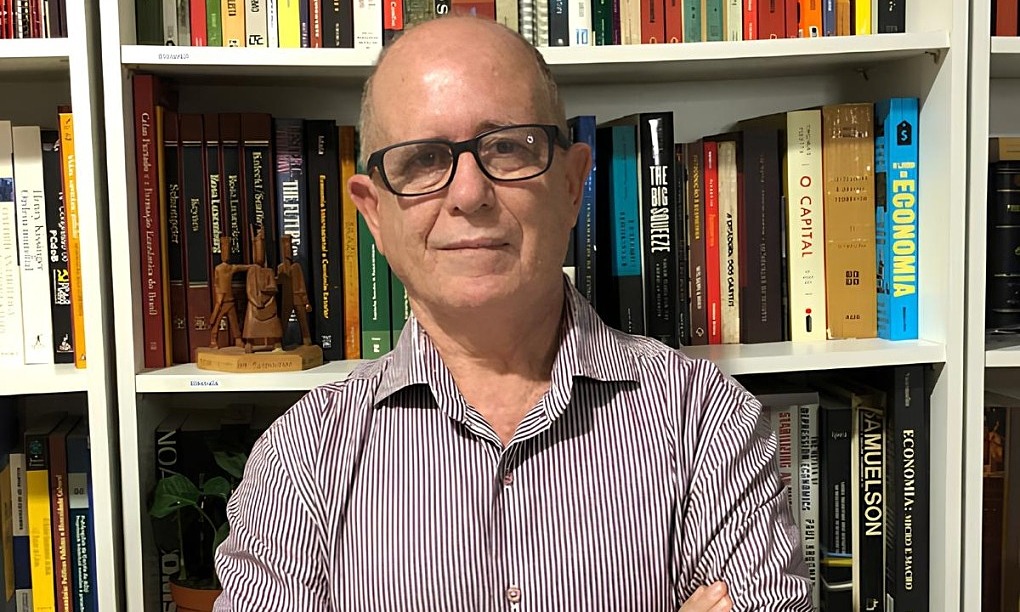Journalist Jailed 7 Times for Defying the Vietnam War

A Legacy of Resistance and Inspiration
In a quiet room in São Paulo, Brazil, 30 students sat in silence as they watched images of B-52 bombers destroying villages and children suffering from napalm burns. These were not just any images; they were powerful visual testimonies of the Vietnam War, captured and shared by the National Liberation Front of South Vietnam to expose the brutal realities of U.S. military actions. This moment was part of a larger movement led by journalist Pedro de Oliveira, who dedicated over five decades to highlighting the struggles of Vietnam and its people.
Pedro, now 77, recalls the secret film screenings he conducted more than 50 years ago. He describes the scenes as “horrifying,” emphasizing that the group could not remain silent in the face of such injustice. Using small cinemas across Brazil, he and his friends aimed to educate students about the atrocities committed during the war and challenge the narrative surrounding U.S. involvement.
A Life of Activism and Sacrifice
Pedro’s commitment to activism came at a high personal cost. He was jailed seven times for his efforts, often due to his work with the communist movement. His journey began in 1968 when he was arrested during a Labor Day protest in São Paulo while still a college freshman. Later, as president of the social sciences student union, he spent nearly two months in prison for screening footage of the Vietnam War. His third arrest occurred in mid-1974, and during his time in prison, he endured electric shocks that left him physically and emotionally scarred.
The military regime of the time viewed protests against the Vietnam War as a threat to national security, leading to arrests without trial. Many of Pedro’s comrades did not return after their sentences, but he survived, though the years of imprisonment left lasting physical and emotional marks. After his seventh arrest in 1985 and subsequent release, he turned his attention to international movements, eventually finding inspiration in Vietnamese history.
Vietnam as a Source of Inspiration
For Pedro, Vietnam became a beacon of resilience and determination. He admires how a small nation managed to overcome powerful empires, from the Mongols and the French to the United States. This perspective shaped his journalistic work, particularly his exploration of the life of President Ho Chi Minh.
In 2021, Pedro published an article for Vermelho, detailing how Nguyen Ai Quoc—Ho Chi Minh’s early revolutionary name—traveled through colonies in Africa and Latin America. During this journey, he met Jose Leandro da Silva, a black sailor who led the Revolt of the Lash in Brazil. Pedro noted that Ho Chi Minh witnessed colonial exploitation and social inequality firsthand, which influenced his vision for national liberation.
Writing About a Revolutionary Leader
Pedro’s book, "Ho Chi Minh: Vida e obra do líder da libertação nacional do Vietnã" (Ho Chi Minh: The Life and Career of the Leader of Vietnam’s National Liberation), has been reprinted multiple times. His 2022 edition won first prize at the 8th National External Information Service Awards in Vietnam. Writing the book was a challenging endeavor, as there were few documents in Portuguese. Pedro had to conduct extensive research using limited English and Spanish skills.
He studied President Ho Chi Minh’s works, former U.S. Defense Secretary Robert McNamara’s memoirs, and analyses of U.S. foreign policy failures by scholar Hans Morgenthau. His work at the National Library of Vietnam and interactions with scholars in Hanoi and Da Nang provided valuable insights. Each piece of literature served as a “brick” in building the foundation of his book.
A Lasting Impact and New Beginnings
As secretary-general of the Vietnam-Brazil Friendship and Cooperation Association, Pedro continues to promote Ho Chi Minh’s ideals and Vietnam’s development experiences to the people of Brazil and Latin America. The association is publishing a Spanish edition of his book to share this legacy with a wider audience. He is also researching Ho Chi Minh’s time in Brazil in 1912, when he stayed in Rio de Janeiro to recover from an illness. This period, he believes, was crucial in inspiring movements against racial discrimination and protecting the rights of Brazil’s maritime workers.
The association fosters cultural, sporting, economic, and trade relations between the two nations. It is collaborating with Brazil’s Ministry of Science, Technology and Innovation to strengthen cooperation in semiconductors and aerospace.
A Continued Journey
Pedro returned to Vietnam for the fourth time in early September and was deeply moved by the sight of people camping along the streets of Hanoi to witness the National Day parade on September 2. He and other international friends of Vietnam were welcomed and honored by the Party and government.
For Pedro, every visit to Vietnam is a chance to learn more about its history, society, politics, and economy. He values these opportunities greatly. As preparations continue for the 16th Congress of the Communist Party of Brazil in October, he emphasizes the importance of looking to Vietnam’s experience as a model for future development.

Comments
Post a Comment